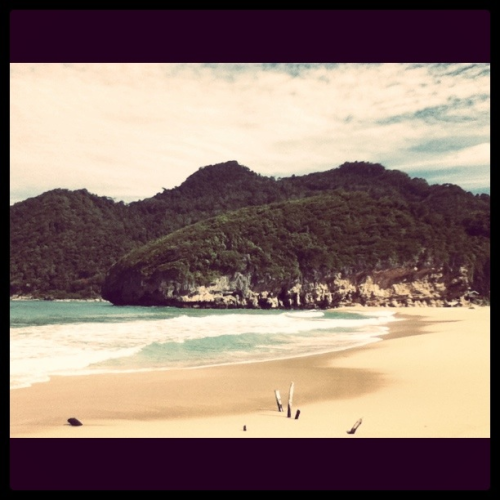A few years back while I was writing a paper, I came across journal articles on humour studies. Before you throw an encyclopedia at my head for even over-analysing laughing, bear with me. Firstly, a joke can only be funny if it's socially and culturally acceptable as 'the norm'. Laughing needs to be politically correct. It is the reason why different communities, societies, countries, region, etc, have 'localised jokes'.
Secondly, we have a tendency to laugh, nervously, when we are in uncomfortable situations. When we forget someone's name, arrive late, or other trivial mistakes. Laughing is a 'normaliser of discomfort'. Bring that on a societal level, anything we laugh about signifies what collectively makes us uncomfortable. Last night's topics: gender stereotypes (Miund), being an Indonesian-Chinese (Ernest Prakasa), and being overweight (Mo Sidik).
The articles I read came into mind as I was seeing everyone perform. Out of the performers that night, Ernest left the deepest impression on me. Aside from the fact that I laughed my ass off during the whole 20 minutes he performed, he opened up cultural taboos that the pluralist in me thoroughly enjoyed. Being mugged (palak) as a Chinese boy and that the difference between an NU and Muhammadiyah Chinese is that a Muhammadiyah Chinese celebrates Imlek a day before.

Pandji Pragiwaksono's performance in Comedy Cafe.

And, the nerd that I am, I spent the night Googling and reading about the performers. Some of them had their own political mission. Mo Sidik is fighting against discrimination towards overweight people (i.e. how his nephews and nieces asked him to be an Angry Bird) and Pandji Pragiwaksono is a cancer activist who advocates for the use of marijuana in cancer-related medical treatments (i.e. the weed jokes).
Although the cynic in me could not help but realise that many of the people who came that evening, after hearing a joke, looked at the friends they came with to know whether the joke was funny or not (i.e. social approval); listening to the performers I have great respect in the movement and the interest behind it. I look forward to seeing more to come.
